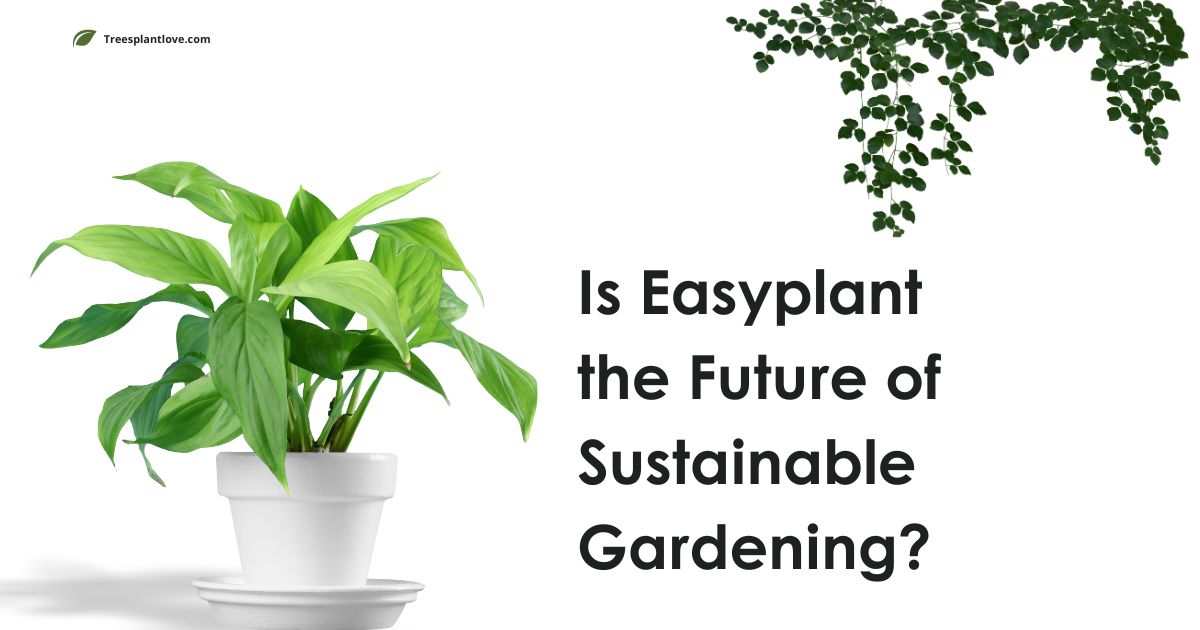
Is Easyplant the Future of Sustainable Gardening? Revolutionizing Eco-Friendly Gardening
Is Easyplant the Future of Sustainable Gardening?: In recent years, the world has seen a growing shift towards sustainability, especially in areas where we have the power to make a direct impact, such as gardening.
Traditional gardening practices, while fulfilling, can sometimes be resource-intensive and require significant time and effort to maintain.
Enter Easyplant: a revolutionary concept that promises to change the way we grow and care for plants, while promoting sustainability. But is Easyplant truly the future of sustainable gardening? Let’s explore the potential it holds.
What is Easyplant?
At its core, Easyplantis a smart, automated gardening system designed to make growing plants easier, more efficient, and more sustainable.
Combining modern technology with eco-friendly principles, Easyplant offers a seamless way to grow plants in both indoor and outdoor environments.
With features like automated watering, nutrient monitoring, and user-friendly interfaces, it reduces the need for constant attention and ensures optimal growth conditions for plants.
Sustainable Gardening: A Growing Concern
Sustainability in gardening is all about minimizing the environmental impact of plant cultivation while promoting healthier ecosystems.
Traditional gardening practices often require heavy use of water, synthetic fertilizers, and pesticides, all of which can lead to pollution, soil degradation, and wasted resources.
Moreover, not all gardeners have the time, knowledge, or resources to maintain a thriving garden.
Sustainable gardening, on the other hand, emphasizes using natural methods to nourish plants, conserve resources, and foster biodiversity.
The idea is to grow food, flowers, and greenery in a way that benefits the environment rather than depleting it.
How Easyplant Contributes to Sustainability
- Water Conservation
One of the most significant advantages of Easyplant in the realm of sustainability is its ability to conserve water. With automated irrigation systems that adjust according to soil moisture levels, Easyplant ensures that plants receive the right amount of water without over-watering. This feature reduces water wastage, a critical concern in regions facing drought or limited water resources.
- Efficient Use of Fertilizers and Nutrients
Easyplant systems are designed to optimize nutrient delivery to plants. By using sensors to monitor soil health and plant needs, the system provides precise amounts of nutrients, which reduces the need for chemical fertilizers. Over-fertilizing can lead to runoff that contaminates waterways and contributes to soil degradation, but with Easyplant, gardeners can avoid this common issue.
- Reducing the Carbon Footprint
Easyplant’s focus on efficiency and automation helps reduce the carbon footprint of gardening. Since the system uses less water and fewer chemicals, it naturally minimizes the environmental impact. Additionally, it can be integrated into energy-efficient systems, such as solar-powered pumps, further reducing the use of non-renewable energy sources.
- Waste Reduction
In traditional gardening, plant waste—such as dead leaves, trimmings, and plant debris—often ends up in landfills. Easyplant encourages composting and proper waste disposal by helping users manage plant health and reduce excess waste. By nurturing plants in a more controlled environment, it becomes easier to recycle plant materials back into the ecosystem.
Easyplant’s Role in Urban and Indoor Gardening
Urban gardening is a growing trend as more people seek to grow their own food and green spaces in cities where land is limited.
Easyplant’s compact and automated design makes it a perfect solution for urban dwellers looking to grow plants without the need for extensive outdoor space.
Indoor gardening also plays a significant role in reducing food miles and promoting self-sufficiency. Easyplant’s indoor systems allow individuals to grow herbs, vegetables, and small plants right in their homes, contributing to a reduction in the carbon emissions associated with transporting food from farms to stores.
Accessibility and Ease of Use
One of the biggest barriers to sustainable gardening is knowledge and skill. Many people are discouraged from gardening because they lack expertise or don’t have the time to devote to plant care.
Easyplant breaks down these barriers by providing a user-friendly platform that makes gardening accessible to everyone, from beginners to seasoned experts.
With intuitive interfaces, real-time monitoring, and automated systems, Easyplant takes the guesswork out of gardening. Users can enjoy a beautiful, thriving garden with minimal effort, all while supporting sustainable practices.
The Future of Sustainable Gardening
So, is Easyplant the future of sustainable gardening? While it may not be the only solution, it is certainly a step in the right direction.
As technology continues to evolve, we can expect more innovative tools and systems that will make gardening more efficient and environmentally friendly.
Easyplant combines the best of technology with a commitment to sustainability, and that makes it an exciting prospect for the future.
Moreover, Easyplant aligns with the growing global focus on sustainability and the need to conserve resources. By automating key aspects of gardening, it makes sustainable practices more accessible to people at all levels, from urban gardeners to those with large outdoor spaces.
Conclusion
In conclusion, Easyplantoffers an innovative approach to gardening that aligns with the principles of sustainability. Its ability to conserve water, reduce the need for fertilizers, and minimize waste makes it a promising solution for the future of gardening.
As more people embrace sustainable practices, Easyplant may very well play a pivotal role in transforming the way we interact with nature, creating greener and more eco-conscious communities worldwide.

Leave a Reply